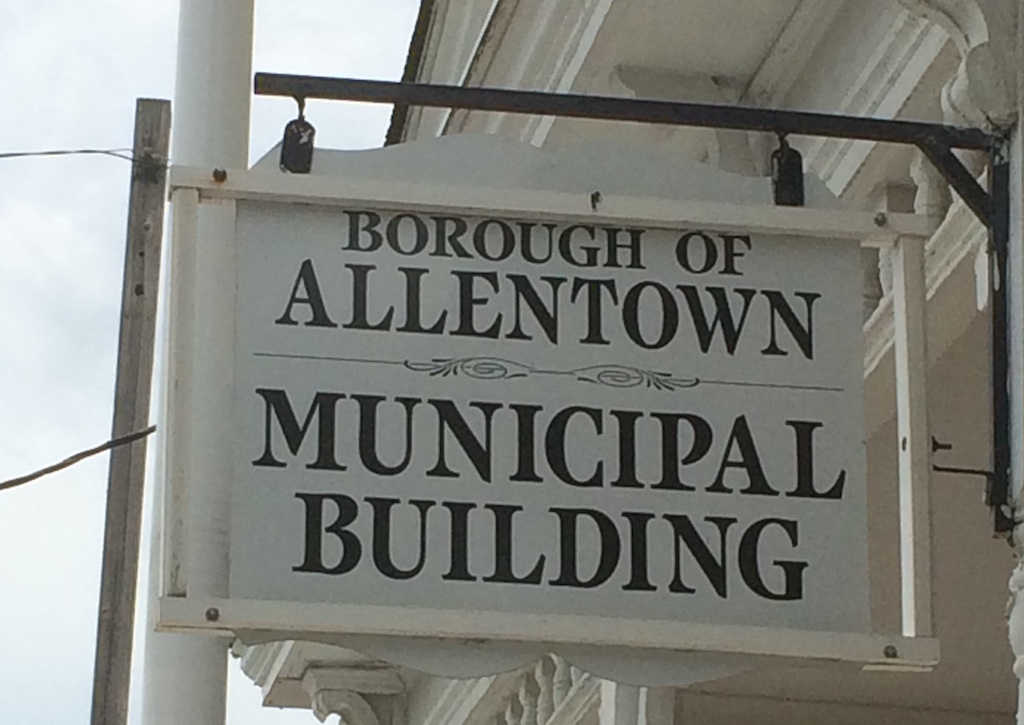ALLENTOWN – The members of the Allentown Borough Council have adopted a municipal budget for 2021 that totals $3.13 million and will be supported through the collection of a $1.68 million local tax levy.
The budget was adopted during the council’s April 6 meeting, which was conducted in a virtual manner during the ongoing coronavirus pandemic.
Council President John A. Elder III, Councilman Robert Strovinsky, Councilman Michael Drennan, Councilwoman Martha Johnson and Councilwoman Erica Torsiello voted “yes” on a motion to adopt the budget. Councilman Dan Payson was absent from the meeting.
According to a budget document posted on the borough’s website, municipal appropriations will increase by $140,000 from $2.99 million in 2020 to $3.13 million in 2021.
An employee will be hired for the Department of Public Works which will increase the number of municipal employees from 31 to 32.
Allentown’s residential and commercial property owners support municipal operations through the payment of a local tax levy. The tax levy will increase by $100,000 from $1.58 million in 2020 to $1.68 million in 2021.
Municipal taxes are one item on a property owner’s total tax bill. Allentown property owners also pay Upper Freehold Regional School District taxes, Monmouth County taxes and an open space tax.
Borough officials said property owners will pay an estimated total of $5.87 million in taxes in 2021 to support the municipal, school, county and open space budgets.
The amount an individual pays in property taxes is determined by the assessed value of his home and/or property and the tax rate that is set by each taxing entity (i.e., municipality, school district and county).
According to Drennan, who serves on the Finance Committee, Allentown’s municipal tax rate will increase from 82 cents to 87.2 cents per $100 of assessed valuation from 2020 to 2021. The councilman cited three factors for the increase in the tax rate.
First, he said that in 2020 when the coronavirus pandemic overtook the state, officials held the tax rate flat at 82 cents by appropriating additional funds from the Allentown’s savings account; second, he said the borough lost cellular communications revenue it had been receiving by renting space for equipment on a tower; and third, he said certain expenses were deferred from 2020 that are due in 2021.
In 2020, the average home in Allentown was assessed at $291,600. The owner of that home paid about $2,391 in municipal taxes (0.82 x 2,916).
In 2021, the average home in Allentown is assessed at $292,860, according to Chief Financial Officer June Madden. The owner of that home will pay about $2,554 in municipal taxes (0.872 x 2,928).
On the revenue side of the 2021 budget, the document indicates municipal officials will use $444,500 from the borough’s surplus account and receive $131,595 from the state.
In 2020, municipal officials used $566,547 from surplus to hold the tax levy flat at $1.58 million and received $131,595 from the state.
On the appropriations side of the 2021 budget, the document indicates municipal officials will fund the following selected appropriations: $92,300 on legal services; $97,500 on engineering services and costs; $70,000 on employee group heath insurance; $535,000 on police salaries and wages; $34,000 on aid to the volunteer fire company; $210,000 for garbage and trash removal; $112,700 on a payment to the Police and Firemen’s Retirement System of New Jersey; and $170,000 on the payment of bond principal.
Madden said the 2021 budget includes a $375,000 grant Allentown has received for sidewalks.
She said that in the first draft of the budget, the municipal tax rate was proposed to increase by 13.5 cents per $100 of assessed valuation.
Madden said that through a process of reviewing appropriations and paring expenses, officials were able to reduce the increase in the tax rate from 13.5 cents to 5.2 cents per $100 of assessed valuation.
Madden said no borough services will be eliminated in 2021 and one employee has been added to the DPW.
“We did the very best we could,” Mayor Thomas Fritts said in a comment on the spending plan.
During the public hearing, Greg Westfall, a former mayor, asked if officials would be able to apply federal stimulus relief funding in the budget.
Fritts said the borough may receive federal stimulus funding, but he said officials are waiting for guidance as to how the money may be used. He said the goal would be to provide property owners with tax relief.
Madden said officials may be able to apply stimulus funds to Allentown’s water and sewer debt.
According to the U.S. Census Bureau, Allentown has a population of just under 1,900 residents.

